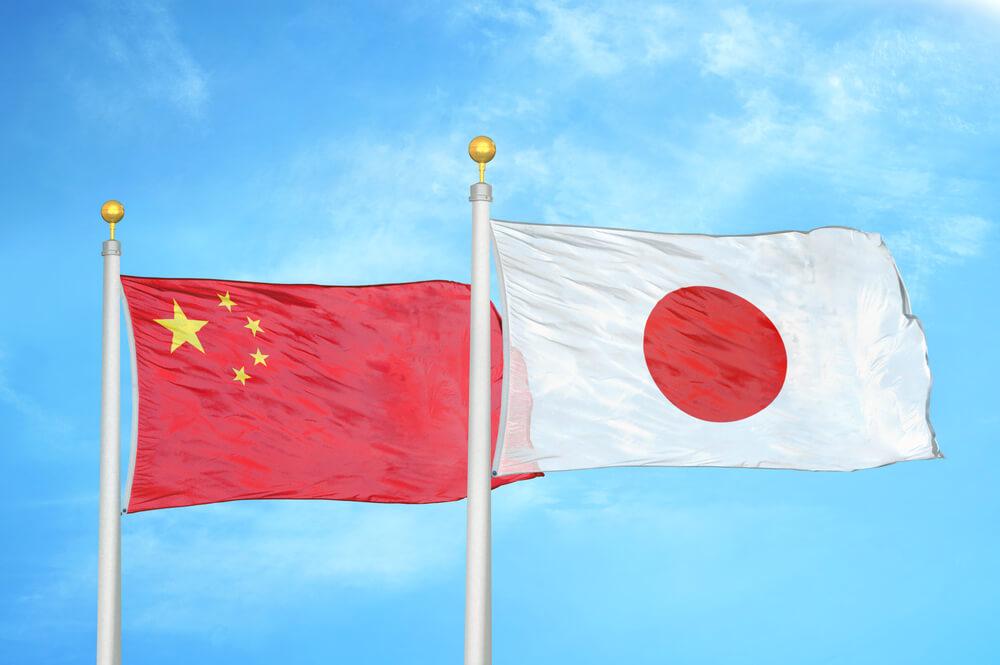Both Chinese vs. Japanese languages have a highly erudite writing system that includes kanji ideograms. When comparing both languages, we can see that Chinese uses more characters than Japanese.
Mostly, 70% to 80% of the kanji characters have a similar meaning. However, the characters used to express different meanings are relatively smaller in the count, but it is crucial to regard and understand the characters when learning the languages.

When you plan to learn a foreign language, multiple factors tempt you towards it. However, when learning Chinese vs. Japanese, it is crucial to work on the pronunciation and the characters to comprehend what the other person is saying.
Furthermore, many people enjoy learning several languages at once. However, many people prefer focusing on one language at a time before shifting to another foreign language. Some languages are more accessible to learn than others, making it difficult to choose where to start. Italian or German? How about French or Spanish? Well, most people focus on these foreign languages even if they have to opt for a second language at college.
But today, we will talk about the most spoken languages in the world that have several similarities. If you plan to choose between Japanese vs. Chinese as your following foreign language, then keep reading to learn all about the two languages.
A Quick Glance at the Chinese Language

Chinese is among the official languages of China. It has many dialects. However, Cantonese and Mandarin are the most popular forms spoken worldwide. The other dialects of the Chinese language include Huizhou, Ping, Jin, Hakka, Yue,Wu, Gan, Min, and Xiang.
The roots of the language lay in the Sinitic and Sino-Tibetan language family. The ancient language has existed for a long time and underwent many changes.
It is written in Hanzi characters. However, there are multiple spoken versions of the Chinese language. The written variety of the language has not changed much over the years, but the spoken language has evolved with the passing years.
A Quick Glance at the Japanese Language

Japanese is the official language of Japan and is primarily spoken in the country. It is written in katakana, kanji and hiragana characters. The Japanese language has existed since the 9th century and underwent several changes over the years. Kana is moderately complex, but kanji is complicated to master.
Many people believe that the Japanese language came from Chinese. However, it is not valid. It is a Japonic language and has its roots preceding their writing. However, despite the close geographical location and shared history, both languages have similarities. You can witness the similarities in their loanwords and writing.
Chinese vs. Japanese Language
One of the significant differences between the Japanese and Chinese languages is the meaning of the words and their pronunciation. However, the most character in the two languages is similar. Japanese often mistake Chinese for the same language as theirs.
The Japanese people think that their language would allow them to get along with the people of China – since the language has similarities. However, it is only a misconception. However, the Japanese people may get along with the people of that region if they communicate in written form.
That is because almost 30% of kanji indicated something in Japanese and something else in the Chinese language. Thus, the confusion that the two languages are the same may create a big misunderstanding between a Japanese-speaking and a Chinese-speaking person if they communicate with each other.
Comparison Chart
| Japanese | Chinese |
| written in kanji | written in Hanzi |
| uses other writing systems, comprising hiragana and katakana | uses Hanzi |
Which is Easier to Learn: Japanese vs.Chinese?
Japanese and Chinese have a fierce reputation for learning the most difficult languages. However, many people believe that no language is difficult or easy. Every language requires determination and commitment to learning to reach fluency and perfection. Therefore, choosing a language, you can quickly learn will encourage you to try a more difficult one the next time.
The US Foreign Service Institute states that both the languages lie in Category V language in terms of difficulty. It means that people willing to learn Chinese or Japanese would take approximately 44 weeks or 2200 hours to reach fluency.
However, people often learn the languages quicker than the estimated time. It all depends on your motivation, goals, and the resources you use to learn the language. Therefore, no exact time calculation reveals how long a person would take to learn Chinese or Japanese.
However, all this did not answer the question: which is easier, Japanese vs. Chinese?
Well, both languages are equally foreign to a new learner. The grammar, the writing system, and the vocabulary will be new knowledge for learners. However, the pronunciation of both languages is different.
Chinese is a tonal language. It means that different pronunciations of words would change their meanings. However, Japanese,on the other hand, is not tonal. However, there are many differences one has to be aware of; you must understand the language to convey the meaning.
Therefore, Japanese is easier than Chinese, and people often reach fluency quickly.
What are the Similarities in the Chinese vs. Japanese Writing System?
The Japanese language has a Chinese script. Today, these characters are known as kanji. Therefore, the Chinese and Japanese languages are very similar regarding writing systems. However, Chinese characters do not reflect the Japanese spoken language.
Therefore, they had to add to hiragana and katakana. These two characters complete the Japanese writing system. The Japanese writing system has three scripts along with kanji. Traditionally, both languages are written top to down, left to right. However, today, people write it just left to right.
FAQs
Where is Chinese vs. Japanese Spoken?
Chinese is primarily spoken in China, whereas people of Japan speak Japanese. However, both languages are equally crucial for the countries as they use these languages to communicate.
Japanese is the official language in Japan, and there are communities in Brazil and the United States. On the other hand, Chinese is spoken in Singapore, Tibet, Hong Kong, Macau, and Taiwan.
How common is Chinese vs. Japanese?
China is the world’s most populous country. Therefore, it is no surprise that many people speak the language. Around 1117 million people worldwide speak Mandarin Chinese, making it the 2nd most widely spoken language globally.
On the other hand, Japan is not as crowded compared to China. But there are still a massive number of people who speak Japanese. There are over 130 million Japanese speakers, making it the 8th most spoken language in the world.
The Bottom Line
Both languages are equally important for the people who communicate with native speakers. The Chinese and Japanese languages have several similarities. However, the difference in languages makes it difficult to comprehend the language.




